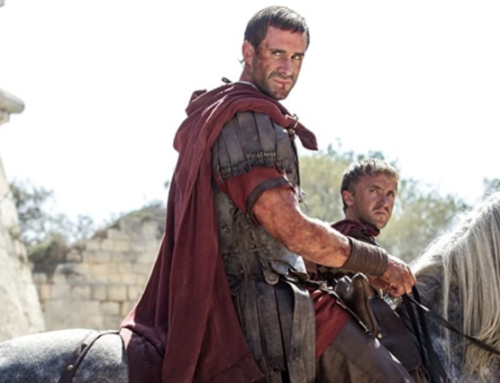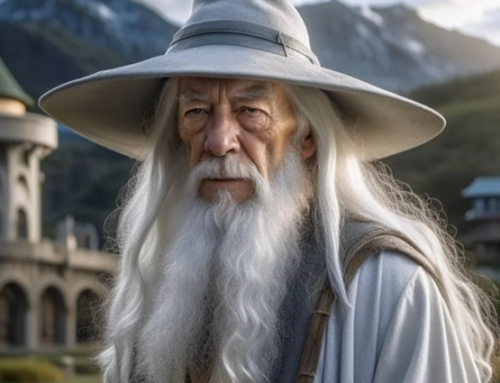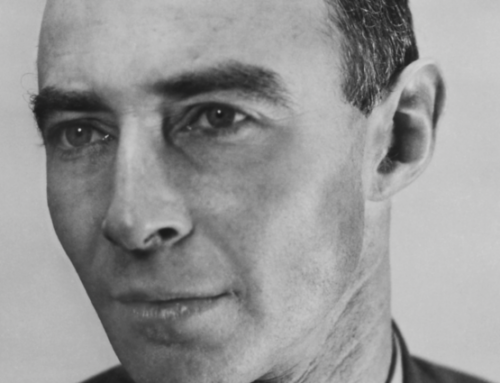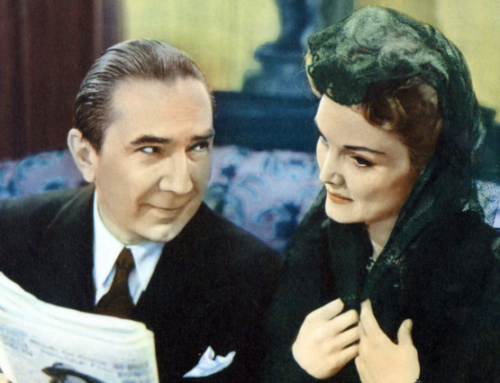In a recent post here on The Imaginative Conservative I claimed that popular entertainment has a crucial political role within a democracy, because popular entertainment is the venue where most citizens gather to contemplate their collective self-understanding. If contemplation of the good life is going to occur on a mass scale, involving a wide spectrum of intellectual talent and moral formation, then more often than not it is going to occur in some venue of popular entertainment.
This may seem like a rather grandiose lead-in to a review of the latest Disney/Pixar release, Monster’s University, but I don’t believe it is. For Monster’s University continues Disney/Pixar’s string of offering up for our delight and edification a comedy that celebrates the virtues necessary to live the life of a morally responsible adult.
From here forward in this review I will refer to Monster’s University as a Pixar Studios film. While Disney is the parent company of Pixar, anyone who compares the recent stand-alone offerings of Disney (The Princess and the Frog, Wreck-It Ralph) to those of Pixar can see that Pixar is the artistically superior of the two companies, a superiority that was established by John Lasseter, Ed Catmull, Pete Docter, and other leaders at Pixar even before Steve Jobs sold the company to Disney. (Some notable exceptions to this rule are Disney’s Tangled, Meet the Robinsons, and Bolt.)
Monster’s University is a prequel to the 2001 Pixar release, Monster’s Inc., in which we were introduced to the characters of Mike and Sully, voiced by Billy Crystal and John Goodman respectively, two top “scarers” at Monster’s Inc. whose job it is to sneak into the bedrooms of sleeping human children–of whom the monster world is deathly afraid–and frighten them. The screams of the children provide the “energy” on which the monster world thrives.
At the beginning of the prequel we are introduced to Mike as a small monster, whose life’s dream is to grow up and become a scarer at Monster’s Inc. This dream leads him, eventually, to matriculation at Monster’s University, where he enrolls in the school’s prestigious scarers program. There he meets, for the first time, Sully, who is not yet the lovable, big-hearted scarer we know from Monster’s Inc., but who is rather a full-of-himself dope.
The story of Monster’s University is essentially the story of how the two great buddies we know from Monster’s Inc. came to be great buddies. On the one hand, it is the story of Sully’s moral transformation. Sully’s conceited behavior leads to both his and Mike’s getting kicked out of the scarers program. But when the hilariously ominous Dean Hardscrabble–perfectly voiced by Helen Mirren–reluctantly gives both Sully and Mike a second chance to enroll in the program by winning the university’s Scare Games, Sully is given his opportunity to grow up.
It doesn’t happen immediately. Sully’s fear of not getting back into the scarers program and thus not living up to the great Sullivan name leads him to make a choice that puts both his and Mike’s future careers, and budding friendship, in jeopardy.
But Mike, although more noble-hearted than Sully at this early stage of their monster lives, has some lessons to learn of his own. He has to learn how to bring the best out of a misfit band of monster teammates with whom he and Sully are forced to compete in the Scare Games. More importantly, he has to learn how to solve the puzzle of how his meager natural abilities as a scarer can help him help achieve his dream of one day working at Monster’s Inc.
In the end, Monster’s University underscores the critical need of perseverance, truth-telling, and loyalty to moral maturity. Most impressively of all, however, it deals wisely with the problem of life’s dreams and what we are to do when our talents don’t seem to suit us for what we want. Instead of allowing Mike simply to transform himself at will, the film shows him learning what his limitations are, but also how those limitations can be overcome by working in concert with his friends. For this reason alone Monster’s University deserves our admiration.
But this admiration is made even easier to extend by the uproarious comedy of the film. Academics, college students, and parents of same will get a special kick out of all the tropes of modern American higher education that are spoofed in the film (along these lines, don’t forget to check out the Monster’s University website). For myself, I would have loved to have seen a little more biting satire of the college scene–the priceless gag with the “new age philosophy” major only whetted my appetite for more jokes in this vein. But don’t worry. There is humor enough here to keep you and your family hugely entertained.
About the Pixar short that precedes the film I am less enthusiastic. Pixar always adds a short to its theatrical releases, and they are usually more experimental, less broad in their humor, more Euro cinema in feel. The current offering, The Blue Umbrella, falls utterly flat. The story of an anthropomorphic blue umbrella who falls in love with a feminine red umbrella, it lacks humor, pace, and narrative direction. Worst of all, it seems to end on a note of gender confusion, as the apparently romantically united owners of the romantically reunited umbrellas, whose faces are hidden from view by the umbrellas themselves, seem both to possess feminine physiques. (To be honest, I’m not sure there wasn’t also a subtle gay allusion in the two-headed monster, Terry and Terri, both males, in Monster’s University.) But aside from this, The Blue Umbrella is a dull and forgettable seven minutes.
Monster’s University is directed by Dan Scanlon and stars the voice talent of Billy Crystal, John Goodman, Helen Mirren, Steve Buscemi, and Alfred Molina.
Books mentioned in this essay may be found in The Imaginative Conservative Bookstore.








Perhaps it is obvious to everyone else, but it is not obvious to me that (or why) Pixar is artistically superior to Disney. Maybe I don’t see enough films. But I did see Princess and the Frog with my daughters, liked it, and am puzzled as to why it is offered as an example of a bad movie. Perhaps the author can explain?